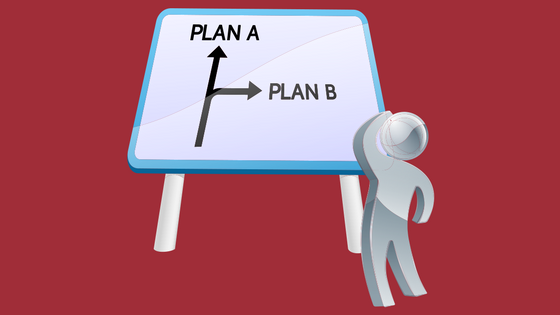
Economic uncertainty has never been more prevalent than during the Great Recession. Ten years later, the picture isn’t much rosier for a lot of people. Now, more than ever, it’s important to secure your financial well-being.
Working hard is priority number one, but unexpected financial problems have a habit of rearing their ugly head at the worst possible time. Everyone needs a Plan B to revert to if needed.
Here are some ideas to help build a Plan B:
1. Create multiple income streams
If your main source of income provides comfortably for your family, it can be tempting to leave well enough alone. What if that went away overnight though? How would you make money? Get another job? What if nobody is hiring in your industry? It’s always a good idea to insulate and supplement your main source of income. Even if you don’t need the extra money to live on, use it to save for emergencies, pay for a vacation, or just on a fun splurge.
∙ Look for freelance work in your field
∙ Turn a fun hobby into something that makes you money
∙ Work on becoming a competent investor to grow the money you already have
2. Always Be Saving
Know that even small contributions add up significantly over time. Find a high yield savings account. Add a fixed amount each month no matter what. Consider having an automatic withdrawal set up if you’re not disciplined. Even $10-25 at a time adds up over the long run!
3. Develop your skills
Be on the lookout for new opportunities to grow your skills or develop completely new ones. This will help you get promoted at your current job as well as give you back up career opportunities. If you sink fully into one career path, you will be scrambling if something unexpected happens to the employment in that industry. It will be scary if Plan A falls apart, but being able to launch Plan B without panicking gives you peace of mind.
4. Network
You’ve probably heard the old adage, “Don’t burn your bridges.” Don’t close any doors hastily. Remain open and available to make contacts wherever you can. Even the mildest acquaintance may be able to help you with a new job in the future.
5. List your plans
It’s vital to be organized when establishing your Plan A and Plan B. It helps to write everything down. List your short and long term financial goals. Cross off goals as you complete them to get a written reminder of your progress.
Make Wise Choices
When deciding what to do with your money, remember to invest in sure outcomes when possible. You do not want to gamble with your money by expecting outsized gains. Your best bet is to find a middle ground. Focus on finding that certain amount of savings that automatically goes into a savings account and can’t be touched or lost in a stock market crash.
A nest egg for unexpected life events gives you time and space to execute your Plan B. If you work hard and create enough extra cash coming in, you can decide to take more lucrative chances with your financial choices. As long as you know you have enough money coming in, it may be worth your time and investment.




No comments yet.